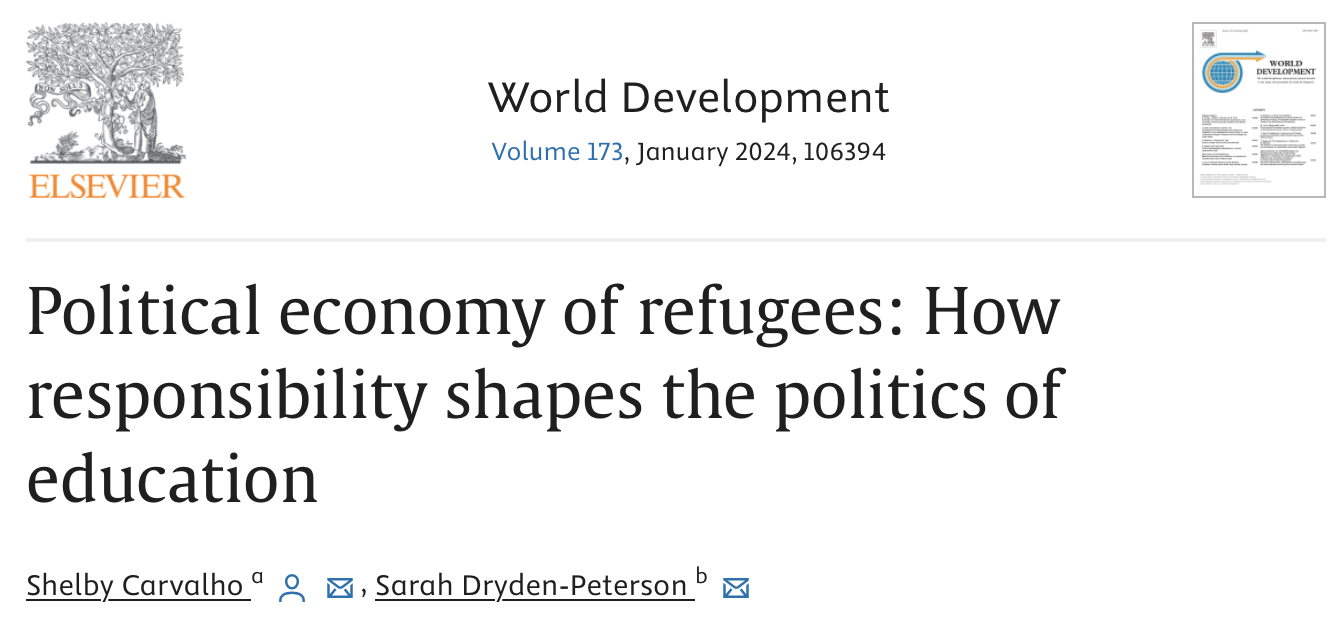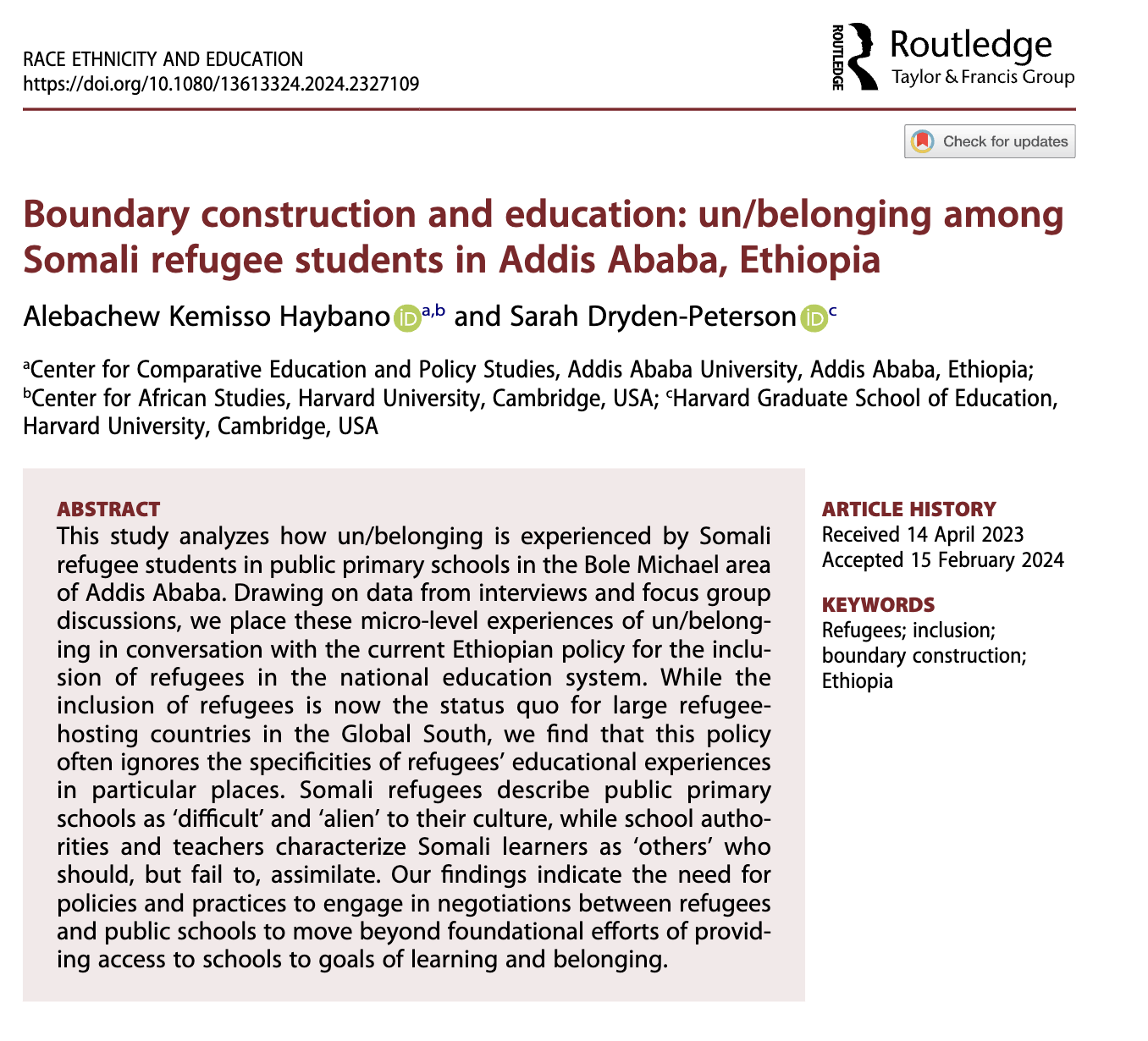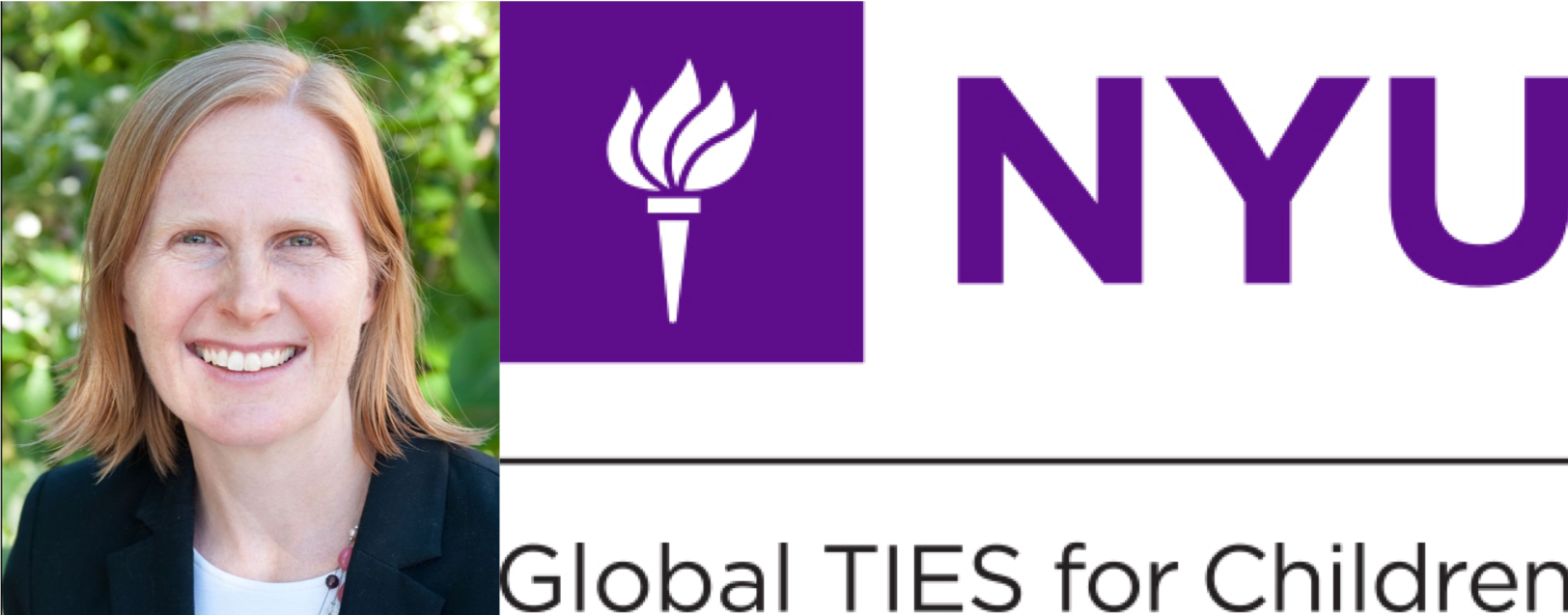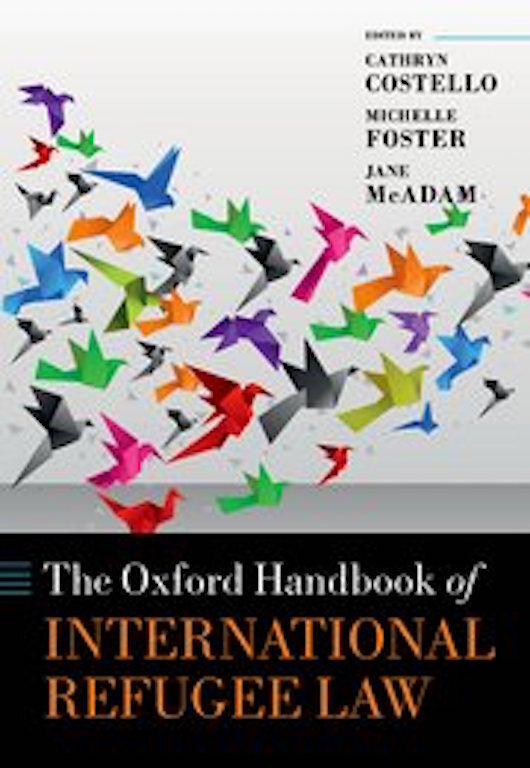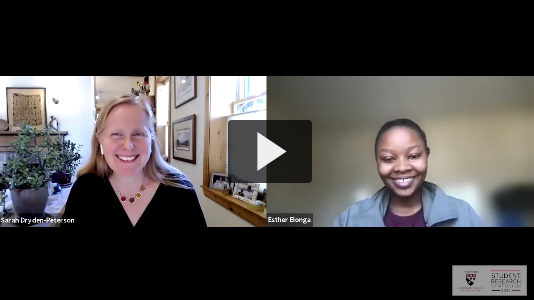Resources for Researchers

Syrian refugee camp in Turkey. Photo: European Union 2016 - European Parliament. (CC BY-NC-ND 2.0.) No changes made. bit.ly/2P1iNM0
How can research foster welcoming communities and quality education in settings of migration and displacement?
Our research focuses on the experiences of teachers and students in schools. We seek to understand the ways that politics and policies interact with processes of teaching and learning in classrooms. We research how classroom pedagogy, curricular content, and relationships can build inclusion and belonging, with implications for both individuals and communities. We work collaboratively with teachers, students, civil society organizations, governments, and international agencies. These long-term collaborative relationships help us to ask relevant research questions and to contribute to policy and program decisions.
Video
Experiences of uncertainty, both the immediate and the long-term, push us to center principles of predictability, adaptability, relationships, and future-building as we design research for equity that long outlives crisis and dismantles the structures and power relations that create and exacerbate it.
Sarah Dryden-Peterson and students Esther Elonga, Martha Franco, Orelia Jonathan, and Kristia Wantchekon discuss how they use these principles in their research amid multiple pandemics of Covid-19 and racism.
Click here to watch the recording.
Background Paper
Read The futures of education for participation in 2050: educating for managing uncertainty and ambiguity by Helen Haste & Vidur Chopra (2020). This paper was commissioned for the UNESCO Futures of Education report.
In this background paper, the authors argue that developing the capacities to manage ambiguity and change are critical to enabling membership and participation within societies in the future. They draw on three examples: migration, communication, and technology, and the ruptures brought about by climate change to illustrate key ideas about the management of change through education.
Special Issue
Read Civic education and the education of refugees by Sarah Dryden-Peterson (2020) in Intercultural Education.
Refugee REACH founder and director Sarah Dryden-Peterson explores the civic education of refugees within the context of a radical global policy shift to include refugees in national education systems. She argues that such a shift has promoted structural inclusion of refugees in national schooling but has not adequately engaged with the relational processes of inclusion.
This essay is part of Intercultural Education's Special Issue on global migration and civic education.
Additional Resources
Research | Refugee students often live in contexts where the inclusion and peace they build within classrooms is met with exclusion and violence in other spaces of their lives, both inside and outside the school. To address this dissonance, teachers of refugees engage in a constant balancing act: teaching their students both for the world that exists and for a world that they wish existed. In research with teachers and students across contexts of conflict and refuge, we observe specific constructive elements of these approaches to teaching and learning, which we call pedagogies of belonging. These pedagogies of belonging are rooted in predictability, adaptability, and future-building, and guided by relationship-building. In considering how more teachers might learn from them and incorporate them into their practices, I examine how teachers in one school in Lebanon who do use these pedagogies have come to do so.
Research | Like all education, refugee education has a double purpose of formation of individuals and formation of societies. This can be seen as the double purpose of education: helping students live a good life in a world worth living in. This includes a view about how people should live in the world, and the kind of world we should try to establish.
Utilizing Jurgen Habermas’s notion of system and lifeworld and theories of practice, this article explores how teachers in South African, Finnish and Australian schools work towards the double purpose of education. Our focus is on the teachers’ visions of what they are doing, and how these practices are impacted by the larger contexts in which students live. The findings show that teachers understand that refugee students will face barriers in their national systems and aim, through their pedagogical practices, to bridge students’ lifeworlds and educational system demands.
The Power Rainbow is a pedagogical tool and framework to support children in power analysis — the ability to make sense of power and how it shapes our lives and societies. It is a graphic representation of nested systems of power, and concretizes the abstract concept of systemic power through shape, color, and text. The Power Rainbow scaffolds the type of structural thinking necessary to research and take action towards more just futures. The tool was originally developed to support children in Critical Participatory Action Research (CPAR), but it can also be used in critical pedagogy more broadly, such as to support action projects in schools, in workshops with children and caregivers, and in understanding our own lives.
Research | This article examines why and how teachers of refugees enact protection by engaging with local forms of harm facing their refugee students. Through portraits of two classrooms in Jordan, we describe the relationships that form between Jordanian teachers and Syrian students, and the protection practices teachers develop in response. We propose a more comprehensive conceptualization of protection in refugee education that layers socio-political protection on legal and rights-based protection commonly embedded in humanitarian activities.
Article | Refugee REACH director Sarah Dryden-Peterson examines lessons from the field of refugee education for times of uncertainty, including current and future pandemics. She outlines three elements of “pedagogies of belonging:” pedagogies of predictability, adaptability, and future-building.
Article | There is a gap between the futures that refugee young people imagine will be possible through their education and the plausible futures in exile, where opportunities are truncated by social, economic, and political exclusions. Our study examines how education can narrow this gap. Through interviews with Syrian students in Lebanon, we document fixed and malleable elements of education that refugee students identify as bridging their current education and their futures. Students experience the structures and content of schooling in Lebanon as both exclusionary and immutable, yet their teachers use what we call relational pedagogies rooted in predictability, explaining, fairness, and care to support students’ learning and navigation toward future opportunities.
Article | Limitations on membership and participation in host societies sharply constrain refugee young people’s civic development. Especially when refugees attend national schools, they find themselves submerged in civic learning that does not include them or represent their experiences and realities. To explore possibilities for civic learning among refugees, we examine the education created by a Syrian community inside the structures of a Lebanese private school in Beirut. We conceive of this school as a ‘borderlands’ and find that it supports civic membership and participation in three ways: through adaptations to the Lebanese structures, curricula, and languages of schooling; through pedagogies focused on pragmatism; and through opening limited spaces for students to practice civic skills. We argue that the borderlands space created by this school holds lessons for both refugee and national teachers and school systems seeking to foster civic learning among refugees.
Article | Education is one of the key tools of nation-building, as it aims to create future citizens. Yet what happens in seemingly ‘futureless’ contexts where refugees cannot access even social membership, let alone legal citizenship? In this introduction to our special issue on education for refugees, we explore the aspirations and conceptions of possible futures that students, teachers, governments, international non-governmental organizations (INGOs), and funders have when they promote and pursue education as the solution to the liminal position that refugees in protracted refugee situations find themselves in. Based on insights from the articles, we analyse disconnects between aspirations for education and realities of access to quality education and to opportunities after completing education. We argue that to address these disconnects requires us to move beyond temporal and spatial binaries—present vs. future, here vs. there—that are so common in refugee education discourse and policy. Our suggestion is to draw on and support stakeholders’ work, powerfully exemplified in this special issue, to contribute to improved conditions through pedagogies, practices, and policies that address these binaries.
Article | This study analyzes how un/belonging is experienced by Somali refugee students in public primary schools in the Bole Michael area of Addis Ababa. Drawing on data from interviews and focus group discussions, we place these micro-level experiences of un/belonging in conversation with the current Ethiopian policy for the inclusion of refugees in the national education system. While the inclusion of refugees is now the status quo for large refugee-hosting countries in the Global South, we find that this policy often ignores the specificities of refugees’ educational experiences in particular places. Somali refugees describe public primary schools as ‘difficult’ and ‘alien’ to their culture, while school authorities and teachers characterize Somali learners as ‘others’ who should, but fail to, assimilate. Our findings indicate the need for policies and practices to engage in negotiations between refugees and public schools to move beyond foundational efforts of providing access to schools to goals of learning and belonging.
Research | The political economy for refugees can be understood as distinct from the political economy for citizens as it requires addressing fundamental questions of responsibility and assumptions about time horizons. This is particularly true in education, which is by nature a long-term engagement and investment and for which responsibility is presumed to lie with governments. As host countries and the global community grapple with decisions about how to provide refugee education, it is critical to understand how the political economy for refugees and for citizens may differ to ensure that approaches are equitable and effective for refugees and host communities.
Video | Refugee REACH director Sarah Dryden-Peterson delivers a lecture titled Refugee Education: Power, Purposes, and Pedagogies Across Contexts, hosted by NYU’s Global TIES for Children.
Interview | Elisabeth King and Cyrus Samii spoke with REACH team member Laura Cesaro about their new book and the implications of their findings for policymakers and schools as they seek to create conditions for peace in contexts of conflict and ethnic diversity.
Article | Refugee REACH director Sarah Dryden-Peterson discusses two mobilities that emerge through her team’s work on refugee education: cognitive mobility and temporal mobility. These have broad relevance for what, how, and why children and young people learn, including as related to language in education.
Video | Researchers from the Peace Research Institute Oslo and Harvard University teamed up with PositiveNegatives to convey the narratives of refugee students and teachers in the Dadaab refugee camps of Kenya.
Book chapter | Refugee REACH director Sarah Dryden-Peterson and affiliate Hania Mariën jointly contributed a book chapter in The Oxford Handbook of International Refugee Law, focusing on the right to education.
Video | REACH co-founder Vidur Chopra of Teachers College presents his research, together with Helen Haste, during a two-part webinar series on UNESCO’s Futures of Education Initiative.
Video | Refugee REACH director Sarah Dryden-Peterson and students Esther Elonga, Martha Franco, Orelia Jonathan, and Kristia Wantchekon discuss how experiences of uncertainty affect the research design process amid multiple pandemics of Covid-19 and racism.







